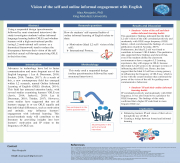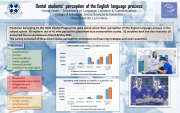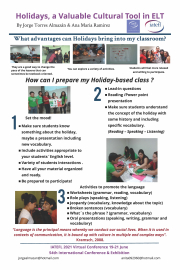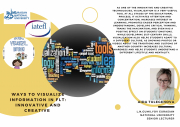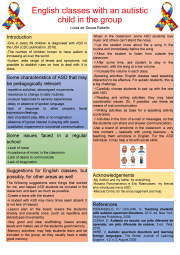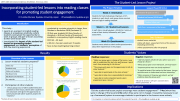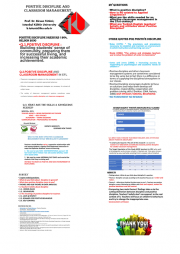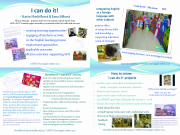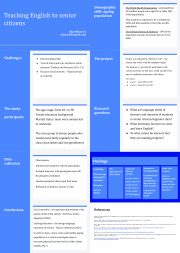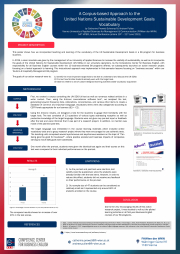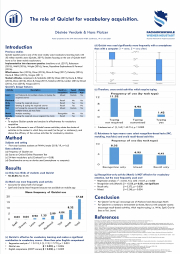Below is a list of the Poster Presentations from the 54th International IATEFL Conference and Exhibition. Click on the title of the poster to see it in full size. The posters will be available to view for the duration of the Conference and for a year after the event.
Session 1.4 (Saturday 19 June, 1320-1330)
|
Alaa Alnajashi (University of York) |
|
|
Dental students’ perception of the English learning process |
|
|
Jorge Torres Almazan (Universidad Pedagógica Nacional) |
|
|
Aida Tulegenova (L.N.Gumilyov Eurasian National University) |
Session 2.3 (Sunday 20 June, 1140-1150)
| The why and how of EFL listening: a case study Chiara Bruzzano (University of Leeds) RES This poster explores how EFL teachers from an Italian secondary school teach listening and how they make sense of their teaching practices; further, this presentation discusses how their learners approach listening on a cognitive, affective and motivational level. Implications are discussed regarding how teaching and learning practices and beliefs interact dynamically in the classroom. |
|
|
Lúcia de Souza Rabello (Colegio Visconde de Porto Seguro) |
|
| Multiactibility seminar: integration of activities and abilities in ESP Juan Carlos Izaguirre Sanchez (Medical University Santiago de Cuba) AL, ESP The fact of combining different tasks and the four basic language skills of the language within a single lesson has been challenging for teachers, but at the same time it has proven effectiveness either theoretically or practically while using ‘Multiactibility seminar’. This has shown advantages in language learning as well as enhancement on the health professional’s communicative competence. |
|
|
Fumiko Murase (Ryukoku University) |
|
|
Birsen Tutunis (Istanbul Kultur University) |
Session 3.5 (Monday 21 June, 1330-1340)
I can do it!
Jana Jilkova-Havlickova (ICV & Charles University, ATECR) |
|
|
Olja Milosevic (The International School of Belgrade) |
|
|
Catherine Prewett-Schrempf & Andrew Pullen (University of Applied Sciences for Management & Co) |
|
|
Desiree Verdonk (University of Applied Sciences Wr. Neustadt) |
Content Focus key
| AL = Applied Linguistics BE = Business English EAP = English for Academic Purposes ESAP = English for Specific Academic Purposes ESOL = English for Speakers of Other Languages ESP = English for Specific Purposes |
GEN = General GI = Global Issues IPSEN = Inclusive Practices & SEN LA = Learner Autonomy LAM = Leadership & Management LIT = Literature LT = Learning Technologies MaW = Materials Writing |
MD = Materials Development PRON = Pronunciation RES = Research TD = Teacher Development TEA = Testing, Evaluation & Assessment TTEd = Teacher Training & Education YLT = Young Learners & Teenagers |



